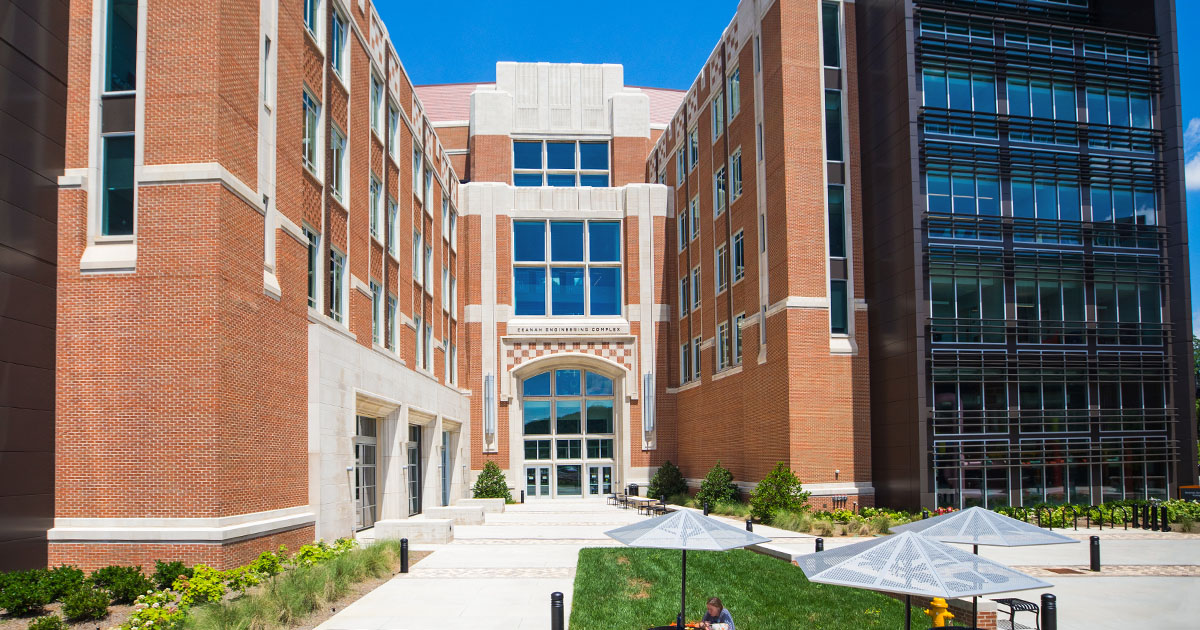Innovators in Nuclear Engineering Receive Federal Accolades, Project Support
Last month, the Nuclear Energy University Program (NEUP) at the US Department of Energy (DOE) pledged more than $56 million to support nuclear energy researchers and programs across the country.
The NEUP support includes a prestigious award for a UT PhD student and several grants supporting the work of faculty in the Department of Nuclear Engineering.
Gursel Applies Novel Algorithm, Raises Industry Standard
Ezgi Gursel, an industrial and systems engineering PhD student working with Associate Professor Anahita Khojandi, was one of just 14 students to win in this year’s NEUP Innovations in Nuclear Energy R&D Student Competition. The competition recognizes students making innovative contributions to nuclear research and development.
“It’s a great honor to receive this award,” said Gursel. “I’m very grateful to the NEUP for their recognition and support.”
Gursel received the award for using artificial intelligence (AI) to detect human errors in nuclear power plants (NPPs). While automation has made many aspects of NPP operation more reliable, human-made records still occasionally disagree with automatic sensor readings.
“Human errors can lead to a range of problems in NPPs, including downtime, delayed responses, and the need for unexpected and costly corrective measures,” Gursel said. “Those issues can impact the safety, reliability, and operational efficiency of a plant.”
To catch those errors, NPPs often employ anomaly detection algorithms—but those algorithms can struggle to find patterns in the highly detailed datasets, where each timestamp can correspond to dozens of sensor readings.
Gursel and her team realized that a more sophisticated approach was needed. A generative adversarial network (GAN) consists of two competing AIs; one pollutes the dataset with convincing forgeries while the other tries to determine which data points are real.
Over time, the network learns to accurately highlight points that do not fit with the true data—like those derived from human error.
“GANs are commonly used in fields such as cybersecurity, medicine, and power systems,” said Gursel, “but to the best of our knowledge, ours is the first work using GANs to detect human errors in NPPs.”
By incorporating a GAN, Gursel’s project outperformed the algorithms previously considered state-of-the-art.
Gursel’s NEUP award includes a $3,500 honorarium and opportunities to travel and present her research.
Zinkle and Wirth to Accelerate Reactor Core Materials Testing
New nuclear reactor designs are often stymied by lack of data on how fuels and core structural materials will perform under operating conditions, but access to reactor test chambers is limited and expensive. To accelerate the development of advanced reactor designs, University of Michigan (U-Mich) Professor Emeritus Gary Was is leading a $3 million project to test how several possible core materials react to ion irradiation.
Was’s team includes UT-Oak Ridge National Laboratory (ORNL) Governor’s Chair for Nuclear Materials Steven Zinkle and UT-ORNL Governor’s Chair for Computational Nuclear Engineering Brian Wirth. Collaborators from Pennsylvania State University, U-Mich, Prairie View A&M University, Texas A&M University, and the Oak Ridge, Los Alamos, Idaho, and Pacific Northwest National Laboratories will also contribute.
Zinkle, Wirth, and their colleagues will create irradiation tests and predictive computational models for alloys of high interest for use in nuclear reactor cores. With a library of alloy response metrics, the researchers hope that designs for the next generation of advanced reactors will be finalized and approved more quickly.
Hattar to Investigate Reactor Material Stability
Metals under high stress for long periods of time can become deformed, a problem known as “creep.” Material creep can severely impact the functionality of important components in nuclear reactors, but there is currently little information on how the radiation within a reactor core influences the creep of the surrounding metals.
As part of a $1 million project led by Associate Professor Kevin Field from U-Mich, UT Associate Professor Khalid Hattar will be investigating how two high-priority alloys respond to a combination of mechanical strain and ion irradiation. The project includes other collaborators from The University of New Mexico (UNM), U-Mich, and ORNL.
Hattar will also help determine the stability of materials known as metal hydrides in active nuclear reactors. Metal hydrides are very good at slowing down energetic neutrons without capturing them, increasing the chance that fuel particles will continue striking each other and producing energy.
The metal hydride investigation, which has received $998,000 in NEUP funding, is being led by Assistant Professor Eric Lang at UNM and will also include contributions from several researchers at Los Alamos National Laboratory (LANL).
Brown to Increase Nuclear Fuel Use Efficiency
“Microreactors” are advanced nuclear reactor concepts with smaller footprints and lower fuel requirements than current reactors. Due to their smaller size, microreactors are expected to be easier to locate and build; however, they cannot contain as much fuel as larger assemblies. To decrease downtime and fuel exchanges, it will be important to increase fuel use efficiency in microreactors.
In a $1 million project led by Associate Professor Jason Trelewicz from Stony Brook University, UT Associate Professor Nick Brown will be helping evaluate the use of hydride composite materials in microreactor components. Because hydrides help promote nuclear reactions, they may help extract more energy from each batch of fuel.
Trelewicz and Brown will be joined in this research by Chase Taylor, a senior scientist at Idaho National Laboratory.
Sobes to Increase Accuracy of Reactor Simulations
Plans for nuclear systems are often subjected to simulations based on standardized nuclear reactor data, which are meant to ensure that the designs can operate safely despite random, unforeseen factors in their construction or operation. Unfortunately, the reference data can include uncertainties or errors that only become apparent in the later planning stages, resulting in cancelled projects.
UT Assistant Professor Vladimir Sobes will be working to address this problem in a $1 million project led by Professor Benoit Forget at the Massachusetts Institute of Technology. Along with collaborators at LANL, Sobes and Forget are hoping to create a method that accounts for nuclear data uncertainty from the start, increasing the accuracy of reactor simulations.
Contact Us
Izzie Gall (865-974-7203, egall4@utk.edu)
